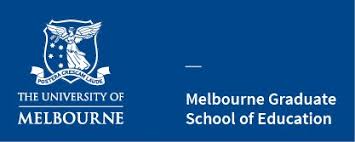Climate change has been identified as the major crisis facing the world, and a core issue for young people.
Addressing the climate crisis in education requires interdisciplinary approaches that reflect the urgency and scope and scale of the situation. Aboriginal and Torres Strait Islander narratives provide new perspectives on interactions with Country, climate change, facilitating reader engagement with Indigenous knowledges and perspectives. While Indigenous writers’ contributions to understandings of climate are well documented, and the power of story to impact on understandings of significant environmental issues is well established, Indigenous writing remains significantly underrepresented in Australia’s secondary school and tertiary curricula.
This project brings into dialogue Indigenous authors, interdisciplinary scholars, English teachers and students through book clubs and public events.
Reading Climate: Indigenous literatures, school English and Sustainable Futures Symposium (January 2022):
This innovative symposium brought together two of Australia’s most celebrated Indigenous authors – Professor Tony Birch and Ellen van Neervan – with leading geo-philosopher Professor Kathryn Yusoff to consider the power of interdisciplinary collaboration centred on the literary arts in our rapidly changing climate.
Reading Climate: Teacher Seminars (November 2022):
The Reading Climate teaching seminars were a series of professional development online bookclubs for English teachers in secondary schools from across Australia.
Using the anthology of First Nations speculative fiction, This All Come Back Now (UQP) as their starting point, the bookclubs investigated the power of storytelling to address environmental issues. Editor of the collection, Mykaela Saunders, and contributor, Ellen van Neervan, also participated in these sessions, and were available to provide insights and answer questions for teachers. By putting teachers and authors in dialogue with each other, teachers were able to develop a greater understanding of the texts themselves and how to engage young people with these works in the classroom.

Researchers
Larissa McLean Davies (University of Melbourne)
Larissa McLean Davies is Professor of Teacher Education at the Melbourne Graduate School of Education, University of Melbourne. Larissa McLean Davies leads large-scale Teacher Education research which mobilises partnerships with Government agencies, Education Departments, and not-for-profit organisations. She is the co-convenor of the Literary Education Lab (with Dr Sarah E. Truman), where she leads research which draws together the digital and environmental humanities, literary studies and education around core issues related to teacher professional learning in the context of justice and sustainability imperatives. Her co-authored book Literary Knowing and the Making of English Teachers will be published by Routledge in 2022.
Sarah E. Truman (University of Melbourne)
Sarah E. Truman is an interdisciplinary scholar whose interests intersect with English literary education, cultural studies, and the arts. From 2022-2025, Dr. Truman is an ARC DECRA Fellow conducting a project focused on speculative and science fiction as methods for thinking critically about the world and proposing different futures on themes of technology, climate and social justice. Dr. Truman is co-director of the Literary Education Lab; co-director of WalkingLab, and one half of Oblique Curiosites. Dr Truman’s most recent book is Feminist Speculations and the Practice of Research-Creation (Routlege, 2022).
Clare Archer-Lean (University of the Sunshine Coast)
Clare Archer-Lean is Senior Lecturer in English and Deputy Higher Degree Research Coordinator in USC’s School of Business and Creative Industries. Clare’s research is focused on analysis of animals and environment in various cultural artefacts, but also in applied, trans-disciplinary work. Clare’s work also explores how Indigenous storytelling provides vital insights into sustainability. Clare is a committee member of Australasian Animal Studies Association (AASA) and on the editorial board for Social Alternatives and Animal Studies Journal.
Sandra Phillips (University of Queensland)
Sandra Phillips is a member of the Wakka Wakka and Gooreng Gooreng nations of Queensland and Associate Professor and Associate Dean (Indigenous Engagement) at University of Queensland. Prior to becoming an academic, Sandra had a successful career in Australian publishing and continues to be a widely recognised and valued leader in the Indigenous literary sector.





